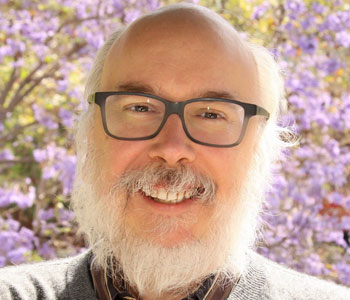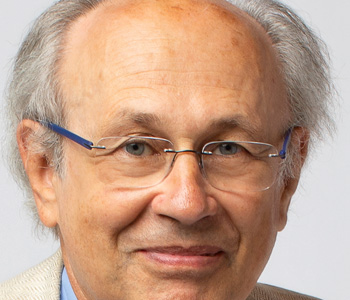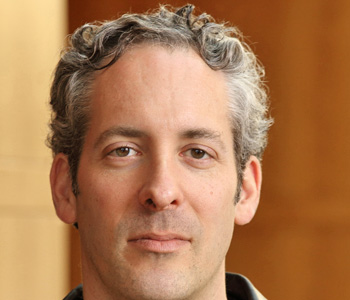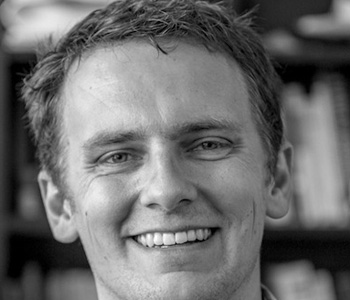Patrick Allitt
The Conservatives: Ideas and Personalities Throughout American History
Yale University Press
336 pages, 9 x 6 inches
ISBN 978 0300164183
“Conservative” means different things in different times and places. This book describes and explains the different types of conservatism in American history, from the Constitution to the end of the twentieth century. In writing it I tried to avoid taking sides, so that readers from all points on the political spectrum can read the book and learn from it. The Conservatives does not make the case for or against conservatism. Instead, I explain who was conservative, why, and how their beliefs informed their actions.
Before about 1930 few Americans described themselves as conservatives but they often used the word as an adjective (as in “I have a conservative view of this problem”). For various eighteenth- and nineteenth-century figures, accordingly, I have made the argument that they can be thought of as conservatives, but with the important proviso that it’s not a word they used about themselves. Often I say, in effect: think about George Washington (or Daniel Webster, or Henry Adams) as a conservative, and see how that can help you understand him.
I argue that conservatism is contextual and reactive. Conservatives believe that civilization is complex, precious, and delicate, always vulnerable to threats from external enemies and from impetuous reformers within. As the threats have changed over the decades, so has the nature of conservatism.

The American Civil War was a conflict between two types of conservatism: that of the slave South that wanted to preserve its threatened labor system, and that of the Republican North that wanted to preserve the Union.
The U.S.A. was the product of a successful revolution so it may seem paradoxical to regard many of its leading figures as conservative. However, they recognized their achievement as fragile, knew that it might be destroyed, and dedicated their lives to conserving it.
Despite differences over the question of whether the federal government should be big or small, whether American foreign policy should be proactive or isolationist, and whether conservatives should support or criticize capitalism, they all shared a broad streak of anti-utopianism. Human nature will not change, they believed, and a healthy skepticism about human self-interest and corruptibility is preferable to a credulity that cannot stand the test of experience.
The first half of the book sketches the conservative outlook of the Federalists in the 1790s and the Whigs in the early 19the century. It makes the argument that the American Civil War was a conflict between two types of conservatism: that of the slave South that wanted to preserve its threatened labor system, and that of the Republican North that wanted to preserve the Union. The second half of the book looks in more detail at the history of conservatism after the Russian Revolution, one of whose effects was to transform the U.S.A. from the world’s most revolutionary nation into the world’s most counter-revolutionary nation.
One chapter explores the conservative opponents of the New Deal in the 1930s. Led by ex-President Herbert Hoover, they feared that the Federal Government was becoming much too powerful and that President Franklin Roosevelt might be turning himself into an American version of the dictators then rising throughout the world (Hitler, Mussolini, Stalin).
Subsequent chapters explore the New Conservative movement of the 1950s that brought together free-market libertarians, anti-Communists, and traditionalists at a new journal, the National Review. Led by William F. Buckley, Jr. they helped launch the Goldwater Campaign in 1964. Despite its defeat they continued to move the GOP in a consciously conservative direction and succeeded in electing their candidate, Ronald Reagan, in 1980. By then they were enjoying the support of the Neoconservatives, former liberal intellectuals who had been dismayed by the upheavals of the 1960s.
The book’s last chapters examine conservatism in power during the 1980s and the way the movement began to unravel after the end of the Cold War.
I came to this project over the course of twenty years’ work on other topics. My first book was a study of just one aspect of the conservative movement in the Cold War era, Catholic Intellectuals and Conservative Politics in America: 1950-1985 (1993). I then wrote several other books on religious history but kept alive an interest in conservatism. When I realized that no one had attempted a general history of American conservatism since Russell Kirk’s 1953 book, The Conservative Mind, I decided to try it, despite the daunting scope of the project.
Half way through the book I make the argument that Theodore Roosevelt and some of his distinguished contemporaries can be thought of as conservatives. TR never needed to make money for himself (he inherited a fortune) and he exhibited many of the characteristics of a European aristocrat: disdain for the grubbiness of business, a love of the martial virtues, a high sense of honor, and a belief that war is inevitable and glorious. He was a first-rate hunter, believed in the strenuous life, and jumped at the chance to fight in the Spanish-American War. No president has matched him as a vivid and evocative writer: he was an excellent naturalist and a first-rate historian. His histories of the early Republic show the imposition of his conservative judgments on the first decades of American history. He gave high praise to Alexander Hamilton but showed nothing but contempt for Thomas Paine (“that filthy little atheist”). Strong for Washington, he was skeptical about Jefferson.
Among TRs friends and contemporaries was Elihu Root, the New York Senator who was dismayed by passage of the 17th Amendment, which transferred the election of senators from the state governments to the entire electorate. Like Shakespeare’s Coriolanus, Root was too proud to grovel to the electors, and resigned his seat rather than run for re-election. The New Republic bade him good riddance, adding that “no man can lead a people who has his back to the future.” Ironically, that’s just what a conservative should do; look backwards to the rich and complex lessons of the past while moving cautiously into the future.
Another contemporary was Alfred Thayer Mahan, author of The Influence of Sea Power on History. Mahan also thought that war was inevitable and that the United States needed to be sure that when war came America would fight at an advantage, with the strongest possible force and the most up-to-date weapons. At a Hague peace conference in 1907 he urged his fellow American delegates not to accept the principle of international arbitration, and not to favor the outlawing of poison gas shells. Such commitments would actually put America at an awful disadvantage, he told them. When it came to the point, unscrupulous regimes would use the shells and would reject arbitration, forcing an America that had hamstrung itself through credulity to fight at a disadvantage.

Reviewers and interviewers have all asked me what I make of the current situation, whether Sarah Palin is the future of the GOP, and what will happen next. My answer is: the more you study history, the more you realize how hopeless it is to try to predict the future.
I finished the book shortly before the 2008 election and it came out shortly afterwards, when the American conservative movement had suffered a severe check with Obama’s victory and the Republican Party’s defeat. Reviewers and interviewers have all asked me what I make of the current situation, whether Sarah Palin is the future of the GOP, and what will happen next. My answer is: the more you study history, the more you realize how hopeless it is to try to predict the future.
I have also often been asked: who are the real conservatives? There is no simple answer to that question. You could take the view that nothing has done more to transform the world in the last 200 years than industrial capitalism, and that to describe its supporters as “conservatives” is an obvious contradiction. But most defenders of capitalism do call themselves conservatives, largely because they see their job as to defend it against various forms of economic collectivism. My job as an historian is to be descriptive rather than prescriptive. If the champions of capitalism do in fact call themselves conservatives, my job is to explain why, rather than try to contradict them.
Another question I face nearly every time I write and speak on this topic is: are you a conservative? The answer is a mixture of yes and no. On the one hand I grew up in Britain during its long flirtation with socialism and always believed in the essential rightness of the National Health Service. That makes me a lefty by American standards. On the other hand I became a passionate anti-Communist after reading the work of Solzhenitsyn in the 1970s, and I believe equally strongly in the essential rightness of free-market capitalism, which has done more than anything else to enrich the world and liberate the masses from misery and poverty. That makes me a conservative, at least of a kind. So does my skepticism about the perfectibility of human nature. I agree with many of the people I wrote about that we are all sinners and that we need to live with institutions that recognize this reality and impose necessary constraints on us.




We don't put paywalls. We don't distract you with ads. We don't sell your data.
Please help to keep this running!